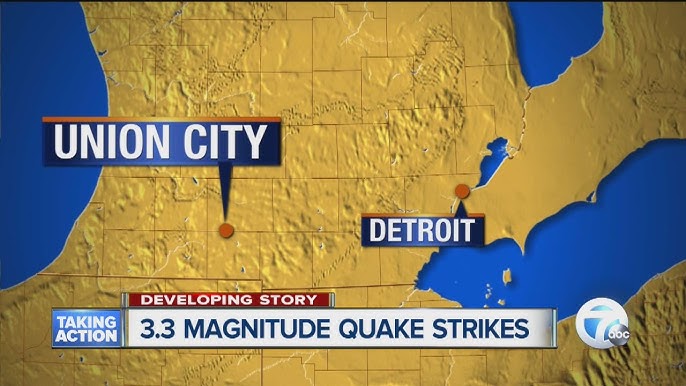Introduction
Apple has officially stopped signing iOS 18.4.1, which means users can no longer downgrade to this version from iOS 18.5 or later. For most casual users, this may seem like a routine update in Apple’s ongoing software evolution. But for developers, jailbreak enthusiasts, and even cautious users who like to keep a fallback option, this is a significant change. This move marks Apple’s continued commitment to pushing its user base toward the latest operating system often for security, performance, and ecosystem control reasons.
In this we’ll unpack what it means when Apple “stops signing” an iOS version, why they do it, the implications for everyday users and developers, and how this affects the broader iOS ecosystem. Let’s dive in.
What Does “Apple Stops Signing iOS” Mean?
When Apple stops signing an iOS version like 18.4.1, it essentially disables the ability for users to install or revert to that version via iTunes or Finder. Every iOS device communicates with Apple’s servers during an update or restore. These servers verify that the version being installed is currently approved or “signed.” Once a version is unsigned:
- You can no longer downgrade to that version.
- Restores using that IPSW file will fail.
- Only currently signed iOS versions will be accepted during installation.
This mechanism ensures users cannot revert to older, potentially vulnerable software.
Why Did Apple Stop Signing iOS 18.4.1?
There are several reasons Apple discontinues signing older iOS builds:
Security Enhancements
One of the primary reasons Apple stops signing older iOS versions like 18.4.1 is to enforce stronger security enhancements across its ecosystem. Each new iOS update typically includes patches for vulnerabilities identified in previous versions. By discontinuing support for iOS 18.4.1, Apple effectively prevents users from reverting to software that may be susceptible to known exploits. This move protects devices from threats such as malware, unauthorized access, and data leaks. It also minimizes the risk of jailbreaks, which often rely on security loopholes in older firmware. Additionally, securing the software environment allows Apple to safeguard sensitive user data and maintain the integrity of services like Apple Pay, Face ID, and iCloud. In an age where cyber threats evolve rapidly, Apple’s strict signing policy ensures that all active devices benefit from the latest protections. Ultimately, it’s a critical step in enforcing consistent, up-to-date security standards across the iOS user base.

Ecosystem Consistency
Apple’s decision to stop signing iOS 18.4.1 also plays a crucial role in maintaining ecosystem consistency across its devices. With millions of users spread across iPhones, iPads, and other Apple products, consistency in software versions ensures a uniform user experience. When most devices run the latest iOS version, developers can focus on optimizing apps for a single platform, reducing fragmentation and compatibility issues. This simplifies everything from app testing to feature rollouts, ensuring smoother updates and better overall performance. It also allows Apple to deploy security patches, bug fixes, and feature enhancements more effectively, without worrying about backward compatibility for older versions like iOS 18.4.1. For users, this means fewer glitches, better integration with services like AirDrop, iCloud, and FaceTime, and a cohesive digital experience. By eliminating outdated software, Apple strengthens the reliability, performance, and predictability of its tightly knit hardware-software ecosystem, making it more robust and user-friendly.
Anti-Jailbreaking Measures
A major reason Apple stops signing older iOS versions like 18.4.1 is to enforce strict anti-jailbreaking measures. Jailbreaking allows users to bypass Apple’s software restrictions, enabling unauthorized app installations and deeper system access. While this offers customization freedom, it also opens doors to security vulnerabilities, malware, and system instability. Older iOS versions are prime targets for jailbreak developers because they often contain exploitable flaws. By ceasing to sign iOS 18.4.1, Apple effectively shuts down any potential jailbreak methods tied to that version, forcing users to stay on more secure, patched releases. This move protects the integrity of the iOS ecosystem and ensures a safer experience for users. It also discourages activities that could compromise user data or lead to device bricking. Apple’s consistent approach to closing downgrade paths helps eliminate the risk of widespread jailbreaking, reinforcing its stance on providing a secure, controlled, and optimized operating environment for all iOS devices.
Encouraging Feature Adoption
Apple’s decision to stop signing iOS 18.4.1 also reflects its strategy of encouraging feature adoption across the iOS ecosystem. Each new iOS version, such as 18.5 and beyond, introduces enhanced functionalities, design improvements, and deeper integration with services like iCloud, Apple Pay, and HomeKit. By restricting the ability to downgrade, Apple ensures users remain on the most current version, where these new features are fully supported and optimized. This widespread adoption enables Apple to deliver a unified experience across devices and services, enhancing user satisfaction and overall ecosystem performance. It also allows developers to confidently build and update apps that leverage the latest APIs and frameworks, knowing the majority of users are running up to date software. Ultimately, halting support for older versions like iOS 18.4.1 pushes the user base toward innovation, ensuring that everyone benefits from Apple’s latest technological advancements in performance, privacy, security, and user experience enhancements.
Timeline of iOS 18.4.1: A Brief Look Back
iOS 18.4.1 was released as a relatively minor update compared to the mainline versions, but it held its own importance in the Apple ecosystem. It primarily served as a patch release, addressing:
- Minor bug fixes
- Performance improvements
- A few under-the-hood security enhancements
However, with iOS 18.5 released shortly afterward bringing more robust changes, including updates to Siri, Wallet, and HomeKit Apple was quick to make the switch and retire 18.4.1.
How Does This Impact Users?
No More Downgrades
If you’ve updated to iOS 18.5 or any beta version beyond it, you can no longer go back to 18.4.1. This is particularly problematic if the new version introduces bugs or performance issues that weren’t present before.

Restoration Block
If your device experiences issues and you want to restore it using a local IPSW file of iOS 18.4.1, it will fail. Only the latest signed versions can be used for recovery now.
Loss of Jailbreak Access
Jailbreakers who rely on specific exploits available in iOS 18.4.1 are now at a dead end if they didn’t save their SHSH blobs or downgrade in time. Apple closing this signing window effectively ends any public jailbreaking opportunities for this build.
What Are SHSH Blobs, and Can They Help?
If you’ve been in the jailbreaking community, you’ve likely heard of SHSH blobs. These are unique digital signatures generated for your device for a particular iOS version when Apple is still signing it. Advanced users often save these blobs with tools like TinyUmbrella or TSS Saver.
Can they help now? Only if:
- You saved the SHSH blobs while iOS 18.4.1 was still signed.
- You use custom restore tools like Future Restore.
- Your device is compatible with those tools and the version in question.
For most users, though, once Apple stops signing, it’s effectively game over.
Developer Concerns: Testing Gets Complicated
App developers often test their apps across different iOS versions to ensure compatibility. Losing access to 18.4.1 means:
- Developers can no longer install this version on test devices.
- Bug replication for users still on 18.4.1 becomes impossible.
- Developers must encourage users to update to continue support.
It forces a quicker adoption cycle among developers and reduces the margin for support.
Is Apple’s Approach Justified?
The Pros:
- Security First: Preventing downgrades ensures users are on more secure software.
- Streamlined Ecosystem: Easier for developers, support staff, and Apple itself.
- Enhanced Features: Encourages adoption of newer, better technologies.
The Cons:
- Less User Control: Users lose the ability to choose what works best for them.
- No Fallback Option: Once updated, there’s no way back.
- Jailbreak Lockdown: Limits freedom for users who want full device control.
It’s a classic Apple move one that prioritizes control and security over customization and user autonomy.
Workarounds? Not Really
If you’re wondering whether there’s a workaround to install iOS 18.4.1 now that it’s unsigned, the answer is “not easily.” A few niche options exist:
- Saved SHSH Blobs + Future Restore (Advanced)
- Virtual Machines or Emulators for Development
- Jailbroken devices using tweaks to simulate iOS behavior (limited use)
However, none of these methods are foolproof, simple, or risk-free.
What Should You Do Next?
Stay Updated
The best defense against bugs, malware, and instability is staying on the latest official iOS version. Apple’s track record with security patches and feature updates is strong.

The best defense against bugs, malware, and instability is staying on the latest official iOS version. Apple’s track record with security patches and feature updates is strong.
Back Up Regularly
Because downgrades are off the table, a failed update can be catastrophic without a backup. Always use iCloud or iTunes/Finder to maintain an up-to-date backup of your device.
Follow Signing Status Closely
Websites like ipsw.me track which versions Apple is currently signing. If you plan to experiment, jailbreak, or restore, check signing status before making any changes.
iOS Version Signing: A Pattern of Control
Apple’s control over iOS versions is not a new trend. Every version in the past decade from iOS 7 to iOS 18 has eventually been unsingable within days or weeks of a successor’s release. It’s a deliberate strategy to ensure:
- All users receive the latest security patches.
- Device performance is consistent across the board.
- Older exploits become obsolete, enhancing device integrity.
This model contrasts starkly with platforms like Android, where users can often flash older ROMs with fewer barriers. Apple’s walled-garden approach offers more control for better or worse.
You’re Locked In, Like It or Not
With iOS 18.4.1 officially off the table, Apple continues to shape the iOS user journey with a tightly held rein. Whether you’re a power user frustrated by lack of flexibility or a casual user happy with automatic updates, the reality is the same: Apple decides what you can and cannot install.
For those banking on jailbreaking or wanting to troubleshoot via restores, this marks another locked gate. For most users, however, this will go unnoticed a silent move in the background that represents Apple’s relentless push for the future
- Apple has stopped signing iOS 18.4.1, blocking downgrades or restores to this version.
- Users are now locked into newer versions like iOS 18.5 or upcoming builds.
- The decision supports Apple’s goals around security, feature adoption, and ecosystem control.
- Power users and jailbreakers lose another foothold, while developers face a shorter support timeline.
- Staying up to date, backing up regularly, and tracking signing status are now more important than ever.















